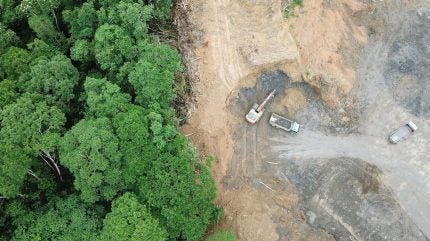
Climate-certification organisation Science Based Targets Initiative (SBTi) has sought to diffuse tensions with its own staff over its proposals on carbon offsets.
Last week, the SBTi revealed plans to permit companies to use environmental attribute certificates to offset emissions from their supply chains, a decision that met with an angry response from some of its own staff.

Discover B2B Marketing That Performs
Combine business intelligence and editorial excellence to reach engaged professionals across 36 leading media platforms.
Employees at the organisation, which certifies companies – including food and beverage businesses – on whether they are on track to help limit global heating to under 1.5 °C, called for the statement announcing the offsetting plan to be withdrawn. They also pushed for the resignation of SBTi CEO Luiz Amaral and any board members who supported the initiative.
In a statement, Amaral has now responded to their complaints, criticism echoed by environmental pressure group the Changing Markets Foundation, which called the move “outrageous”.
He said: “I acknowledge and deeply regret the concern and distress this situation has caused and want to reassure my SBTi colleagues and stakeholders that the SBTi’s dedication to science-based decarbonisation, public consultation and standard-setting governance is unwavering. The SBTi standards have not changed.”
However, Amaral admitted that the offsetting plan is to proceed.

US Tariffs are shifting - will you react or anticipate?
Don’t let policy changes catch you off guard. Stay proactive with real-time data and expert analysis.
By GlobalData“We are exploring changes to tackle the challenges that exist around scope 3, including exploring responsible use of environmental attribute certificates (EACs) with the right guardrails and limits. A first draft paper will be published in July 2024 and, once the revision process is complete, I am confident we will have a more robust standard that will deliver greater impact,” he said.
Explaining the rationale behind the decision, he said: “The battle on climate change will be won or lost on Scope 3, as it is an engine to promote change. One actor in a supply chain influences the next – creating the global movement that we need.
“But we also must recognise that not all Scope 3 emissions are created equal. Some are more material, some less so. Companies have significant control over some emissions, less over others. Some emissions are upstream, others are downstream.”
In a highly critical response to the initial announcement, SBTi employees said the inclusion of carbon offsets in a company’s ranking could lead to so-called ‘greenwashing’, or being seen to do the right thing on cutting greenhouse gas emissions rather than actually reducing them.
The response, sent in the name of “an overwhelming majority of SBTi staff, including representatives of impact, accountability and services, research and technical development, communications and operations” said: “SBTi staff are deeply concerned about the content of the statement and the process by which it was developed and released”.
Trying to allay those ‘greenwashing’ fears, Amaral said: “The mitigation hierarchy shall always apply: companies cannot buy their way out of acting.”
But he added: “I remain firm in my belief that voluntary standards play an important role in helping businesses decarbonise.”
He went on: “The SBTi is operating at the very edge of knowledge and that is why a periodic review of our corporate net-zero standard must follow the approved procedure and be led by evidence.”





